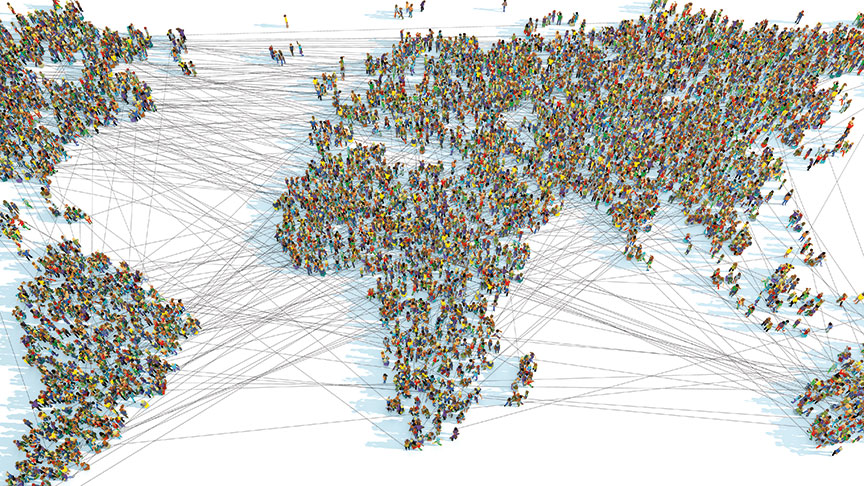Russia’s war of aggression against Ukraine marked a watershed moment for politics and the German academic system last year. It accelerated a discussion that had in fact already begun: How can German foreign science policy meet the challenges of a changed world?
“We live in a new ‘world disorder’, and this requires a new approach to Germany’s foreign science policy relations,” says DAAD President Professor Joybrato Mukherjee. “In our multipolar world, we need today more than ever a strategically positioned ‘science diplomacy’ that enables understanding, dialogue and negotiation of conflicts in the scientific sphere, even in times of increasing conflicts and fierce global competition.”
The DAAD had already voiced support for a new and practical foreign science policy in 2021. “We should not assume that all partners involved in academic cooperation and exchange always pursue the same goals and share a common set of values,” says Dr Sven Werkmeister, Director of Strategy at the DAAD. He believes that what is needed is an “objectively rational view”. “It is a matter of precisely analysing and reflecting on the opportunities and risks of cooperation: especially in the context of geopolitical conflicts, it is necessary to weigh up the possibilities that a specific cooperation project offers against any risks it may potentially entail, such as espionage or knowledge drain, and to do so in an informed manner.”
At the same time, Werkmeister emphasises that internationally networked research is now more important than ever: “The climate crisis, the loss of biodiversity or issues relating to our future supply of energy and raw materials cannot be addressed at the national level – they must be tackled globally.” He also believes that Germany is continuing to profit considerably from international academic exchange: not only thanks to the new insights gained in research, but also through better academic qualifications and greater intercultural competence among students and teaching staff. Last but not least, says Werkmeister, global alumni networks create lasting frameworks for exchange and cooperation.
In a position paper entitled “Foreign Science Policy for a Multipolar World”, the DAAD proposes five principles for shaping a science diplomacy approach that consciously faces up to global crises and system rivalries: foreign science policy should be values-based, responsibility-oriented, interest-driven, regionally differentiated and risk-reflective. Werkmeister explains that China exemplifies all these aspects: “China is on the one hand a partner without whom the global ‘community of responsibility’ will be unable to resolve the challenges of the Anthropocene. China has become one of the world’s leaders in terms of key research indicators such as the number of scientific publications, and is also a country that sends a large number of international students to Germany. On the other hand, China is a country in which there is no academic freedom as we define it, and in which the boundary between civilian and military research is often blurred.”




